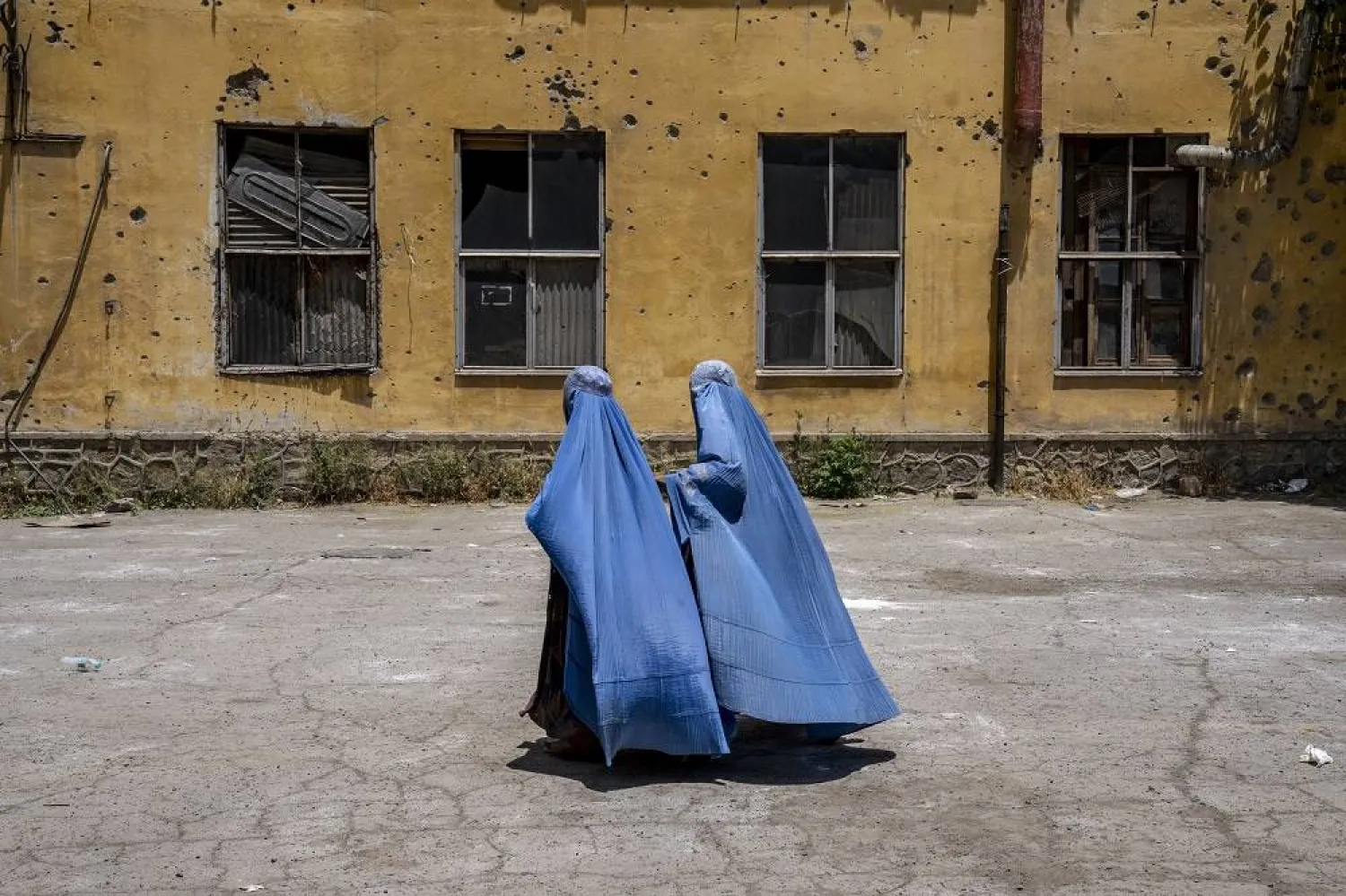Afghanistan's supreme leader said Sunday the country's women were being saved from "traditional oppressions" by the adoption of religious governance and their status as "free and dignified human beings" restored.
In a statement marking this week's Eid al-Adha holiday, Hibatullah Akhundzada -- who rarely appears in public and rules by decree from the Taliban's birthplace in Kandahar -- said steps had been taken to provide women with a "comfortable and prosperous life" according to religious law.
The United Nations expressed "deep concern" last week that women were being deprived of their rights under Afghanistan's Taliban government and warned of systematic gender apartheid.
Since returning to power in August 2021, Taliban authorities have stopped girls and women from attending high school or university, banned them from parks, gyms and public baths, and ordered them to cover up when leaving home.
They have also barred them from working for the UN or NGOs, while most female government employees have been dismissed from their jobs or are being paid to stay at home.
However, Akhundzada said "necessary steps have been taken for the betterment of women as half of the society".
"All institutions have been obliged to help women in securing marriage, inheritance and other rights," his statement read.
Guaranteed rights
Akhundzada said a six-point decree issued in December 2021 guaranteed women their rights.
Among other things, the decree outlawed forced marriages and enshrined the right to inheritance and divorce.
"The negative aspects of the past 20-year occupation related to women's hijab and misguidance will end soon," Akhundzada said.
A report to the UN's Human Rights Council last week by Richard Bennett, the special rapporteur for Afghanistan, said the plight of women and girls in the country "was among the worst in the world".
"Grave, systematic and institutionalized discrimination against women and girls is at the heart of Taliban ideology and rule, which also gives rise to concerns that they may be responsible for gender apartheid," Bennett said.
UN Deputy High Commissioner for Human Rights Nada Al-Nashif added: "Over the past 22 months, every aspect of women's and girls' lives has been restricted."
"They are discriminated against in every way."
Despite his rare public appearances, Akhundzada has regularly issued lengthy "state-of-the-nation"-style statements ahead of important religious festivals and holidays.
"At the national level, the independence of Afghanistan has been restored once again," he said.
He praised Afghanistan's economic resilience, efforts to eradicate poppy cultivation, and the improvement in national security.
"It is our shared responsibility to protect and serve our system," he said.
"The current system is the result of the sacrifices of thousands of mujahideen. Let's stand by each other, eliminate conspiracies, value security and prosperity and work together for its further enhancement."









